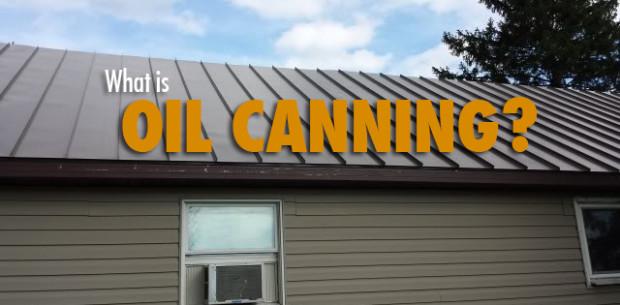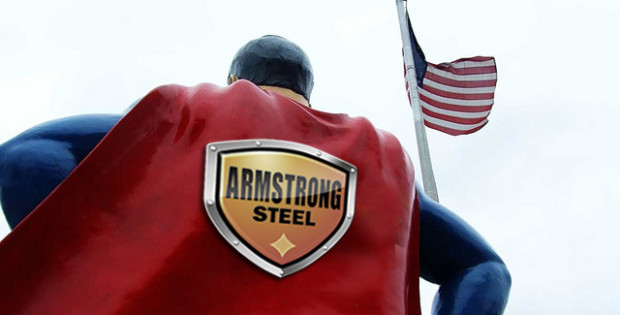What is ‘Oil Canning?’ How Can It Affect a Steel Building?

You did it. You finally built your new steel building. Now the business that you started in a small room with 10 people has finally grown and expanded. Now the workshop you’ve wanted for the last 30 years is finally standing. You’re on top of the world and ready to work even harder. Maybe you’re still deciding if a new steel building is right for you. You understand in construction, “you get what you pay for,” and often times, the cheapest building might be a trap.
If you come to notice part of your steel building’s roof bulging out, or taking on an appearance of wrinkled metal, your roof and building might be experiencing what we call “oil canning.” Oil canning is what happens when steel buckles under stress.
 What actually causes the steel to buckle under stress? Oil canning can be caused by an attachment of a panel system that prevents the natural tendency to expand and contract. Oil canning is also fairly prevalent in poor quality or poorly constructed buildings.
What actually causes the steel to buckle under stress? Oil canning can be caused by an attachment of a panel system that prevents the natural tendency to expand and contract. Oil canning is also fairly prevalent in poor quality or poorly constructed buildings.
These are also other small, individual causes of oil canning. In one case, it could be the thickness (or thinness) of beams, and the stress the beams receive in the manufacturing process. In another, it could be due to over fastening your material in the erection process, again putting more stress on it than necessary. The major category that these individual causes fall into is simple: poor craftsmanship, poor planning, and poor engineering.
I understand you want the best building for the best price. You may want to shop around for the lowest price when you’re buying a computer or designer clothes, but that isn’t always the best idea when it comes to a steel building. Quality should be your concern. A quality new steel building could cost more upfront, but save you more in the long run.
The main way to prevent oil canning is to have the proper knowledge when handling the steel system, or using the proper paneling. For example, choose a steel building provider that knows how to properly take advantage of the science of creating your steel and reducing internal stress points. It all comes back to engineering. During the erection process, you need to properly handle and work with your roofing material and paneling as well.
A project manager will guide you through the process of designing your building, but an in house engineering team will also insure the quality of your new steel building. When you keep the design of your building with a company focused on single source responsibility, the chance of miscommunication is severely reduced. That generally also means that the need to spend money to fix your building later is usually reduced, if not eliminated completely.
Sometimes in our world, appearance can be everything. If your building looks like it’s poorly built, then it most likely is, and that can be dangerous. When thinking about your building options, don’t take the cheap way out; instead learn about the hidden dangers of the cheapest price. Find a supplier that will handle your building project with the proper knowledge and care that you deserve, and do your research on specific materials.
 Since so many factors are involved, its almost impossible to eliminate all the effects of oil canning on any building material. However, with proper engineering, design and handling, the appearance of oil canning is capable of being greatly reduced.
Since so many factors are involved, its almost impossible to eliminate all the effects of oil canning on any building material. However, with proper engineering, design and handling, the appearance of oil canning is capable of being greatly reduced.
Photo courtesy: Festool Owners Group
« How Do You Protect Your Steel Building from Rust?
Pros and Cons of Steel Buildings and Traditional Timber Buildings »
Popular Posts

Let’s face it – steel is synonymous with strength. Superman is often known as “The Man of Steel.” He is the most powerful superhero and is called upon to save the people of Earth from alien threats, killer robots, and ruthless billionaires. Your custom steel building is – in essence – just like Superman. While… …

First of all, let me be the first to congratulate you on buying your new pre-engineered metal building. At Armstrong Steel, we realize this purchase is the culmination of years of thought, planning and saving. Now it’s a reality, and we’re ready to help you along the way. Remember, it’s not everyday that you buy… …

